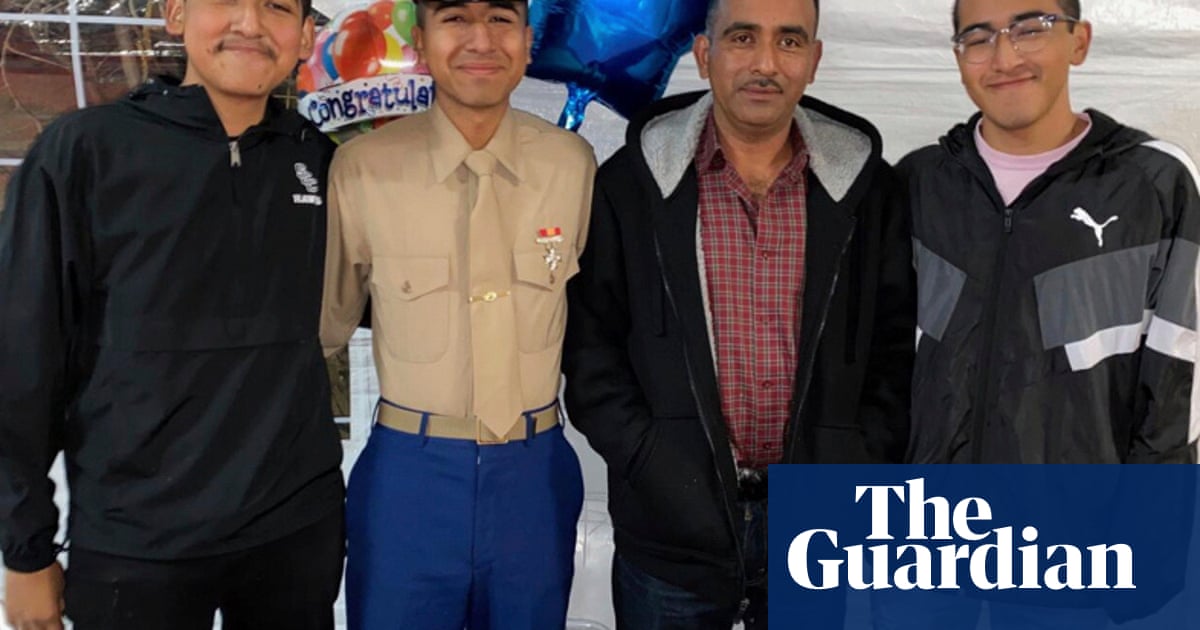The Plight of Jermaine Thomas: A Unique Case in Immigration Policy
In late May, a story emerged that underscores the complexities of immigration law and the consequences of a strict enforcement regime. Jermaine Thomas, the son of an American citizen and military veteran, found himself deported from the United States to Jamaica, a country he had never called home. His case is not just a tale of individual struggle; it reflects a broader issue affecting military families under the current administration.
Background and Unique Circumstances
Jermaine Thomas was born on a U.S. Army base in Germany, a product of his American citizen father, who hailed from Jamaica. Tragically, his father is no longer alive, and Thomas navigates a confusing legal landscape that leaves him without citizenship in any country. Despite his deep familial ties to the United States, the Immigration and Customs Enforcement (ICE) agency deported him based on a deportation order he received prior to his father’s passing.
For Thomas, the difficulty lies in a legal stipulation concerning his father’s physical presence in the U.S. at the time of his birth, which the Supreme Court ruled did not meet the legal requirements to confer citizenship. The case serves as a poignant reminder that not all who are born on American soil are granted citizenship and underscores the complexities of military family dynamics.
A Growing Pattern of Detainment
Jermaine Thomas is not an isolated case. His deportation coincides with an alarming rise in incidents involving the relatives of military service members and veterans being caught in the crosshairs of immigration enforcement. An increasing number of family members of veterans have been detained lately, raising concerns about the administration’s aggressive approach to immigration.
Accounts of U.S. veterans expressing betrayal by government actions abound. One U.S. Marine veteran spoke on CNN about how his father, originally undocumented when he migrated from Mexico in the 1990s, was brutally arrested by ICE agents while working. This incident highlights the vulnerability of families who have sacrificed for their country, only to face harsh consequences from the very system designed to protect their rights.
Stories of Resilience and Heartbreak
Other cases paint a painful picture. One Marine veteran’s wife was detained by ICE while breastfeeding their three-month-old daughter, a grim scenario that refreshingly underscores humanitarian concerns amid bureaucratic processes. Such stories resonate deeply not only with military families but also with the broader public, igniting conversations about the ethical implications of current immigration policies.
Thomas’s deportation came just around Memorial Day, a period dedicated to honoring those who served. It raises uncomfortable questions about how the contributions of service members are remembered and respected — or disrespected — in the face of rigid and punitive immigration policies.
The Broader Implications of Mass Deportations
Under the Trump administration, there has been a significant ramp-up in ICE operations aimed at detaining and deporting undocumented residents. Reports indicate that ICE has been encouraged to increase daily arrests, aiming for a staggering million deportations annually. These escalated measures disproportionately affect individuals without criminal records, exposing the civil infraction of being undocumented as a primary target for enforcement.
As of mid-June, statistics showed more than 11,700 individuals detained by ICE had no previous criminal charges or convictions, marking a dramatic increase since the onset of the administration’s aggressive deportation strategy.
Legal Battles and Personal Struggles
Take Alma Bowman, for instance. Born in the Philippines and raised in the U.S. since childhood, she found herself in ICE custody after a check-in appointment at the Atlanta field office. With a complex legal history — her permanent residence revoked due to a minor criminal as a youth — she stands as another poignant example of how military connections do not guarantee safety or protection under immigration laws.
Bowman’s story resonates particularly as she has been vocal about her unpleasant experience in a detention facility where legal and ethical standards have been called into question. These stories shine a light on how stringent immigration policies intersect with the lives of those who may have been unaware of their precarious legal standing.
Combat Veterans and Deportation Orders
Even combat veterans are not immune to deportation. Sae Joon Park, a U.S. Army veteran and green-card holder, faced deportation due to issues stemming from his service-related struggles, including addiction. Park’s shock at being targeted by the very government he served encapsulates the disillusionment felt by many veterans caught in this bureaucratic nightmare.
The narratives surrounding immigration enforcement reveal not just statistics but the human experiences behind them. They highlight the urgent need for policy re-evaluation and consideration of the sacrifices made by military families, who are often left vulnerable amid harsh immigration laws.
Conclusion: Lives in Limbo
The deportation of individuals like Jermaine Thomas and the experiences of families connected to military service illuminate the often harsh realities of U.S. immigration policy. These stories are reminders that the intersections of nationality, military service, and immigration law reveal complex, often troubling, narratives worthy of attention and empathy. The ongoing discourse around these issues will likely shape the landscape of immigration policy in the years to come, and the path forward remains fraught with challenges and potential solutions.


